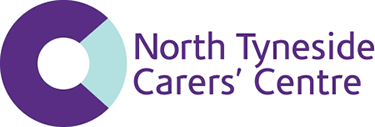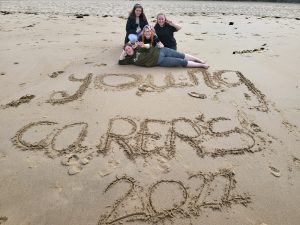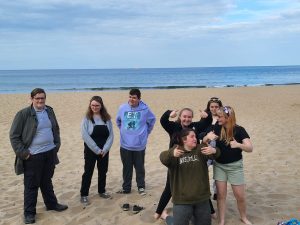Supporting Young Carers
Young Carers are children and young people aged 5-18 who help to look after somebody in their family because that person has a disability, illness, mental health difficulty, or because that person misuses drugs or alcohol.
The support and care a young carer provides can vary, and could include:
- Shopping
- Cooking
- Cleaning
- Looking after younger brothers or sisters
- Managing medication
- Personal care
- Emotional support
In 2022 The Children’s Society estimated that there are 800,000 young carers in the UK between the ages of 5 – 18 years. There are an estimated 7,000 young carers in North Tyneside. This amounts to six young carers in every North Tyneside secondary school class.
Signs to look out for that a child or young person is caring
- The presence of an illness or disability in the family
- Appears tired, stressed, anxious or depressed
- Lateness or absenteeism from school, underachieving or experiencing difficulties with homework
- Unable to partake in after school activities
- Socially isolated
- Unkempt
- Emotional difficulties
- Behavioural difficulties
- Physical problems such as back pain
- False maturity (older than their years)
- Parent/s or guardians may not attend meetings/ parent evenings
The impact of caring on young carers
- Physical health: often severely affected by caring through the night, repeatedly lifting a heavy adult, poor diet and lack of sleep.
- Emotional wellbeing: stress, tiredness and mental ill health are common for young carers.
- Isolation: feeling different or isolated from their peers, limited opportunities for socialisation.
- Education: impacts on school attendance and educational achievement:
- On average young carers miss or cut short 48 school days a year due to bullying and harassment
- More than two out of three young carers are bullied at school
- Young carers are 1.5 times more likely than their peers to have a special educational need or a disability
- Young Carers have significantly lower educational attainment at GCSE level, the equivalent to nine grades lower overall than their peers
Support that professionals can provide to reduce the impact of caring
- Acknowledge the young person’s caring responsibilities so they feel valued.
- Provide a listening ear.
- Provide age appropriate information about their relative’s illness/disability .Identify a trusted adult/professional in their life whom they can talk to.
- Identify opportunities for the young carer to access a break from their caring role
- Identify opportunities for the young carer to do their homework e.g. access to a classroom during lunchtime and homework clubs.
- Help the young carer to access activities where they can mix with their peers and young carers.
- Include the young carer in decision making about them and their family.
- Encourage and support young carers to reach their potential e.g. young carers who want to attend further education or seek employment.
- Refer to North Tyneside Council for a statutory young carers assessment.
- Contact us for further advice or a referral for specialist support if you are unable to meet the young carers needs. If you a professional working with a young carer and would like more information, please call us on 0191 2496480
North Tyneside Carers’ Centre also provides training sessions to help professionals support young and adult carers. Here is the 2025 programme.
Please note: We can only accept referrals for a young person where a Young Carers’ Needs Assessment is in place. For further information about the Young Carers’ Needs Assessment Process, please visit my.northtyneside.gov.uk


